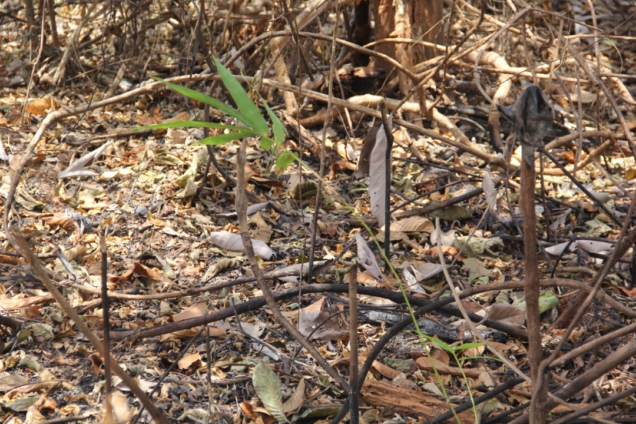Agric experts are advocating the adoption of climate change friendly technologies to ensure an all year round sustainable crop production in Ghana.
Farmers in Ghana are grappling with low crop yield owing to unpredictable weather patterns and poor soil quality.
Consumers in general are having to pay astronomical prices for foodstuff on the markets in the wake current economic crisis.
The situation, they feel, could have been prevented if the country was able to produce enough to feed the citizenry.
Those in the agriculture value chain are attributing the challenge to climate change impact.
Speaking at an EU-Ghana programme on how to adapt agriculture to climate change in Ghana, an Agriculture Extension Officer from the Wa District of the Upper West Region, Nafisa Maham, said the poor quality of soil is sometimes caused by certain unhealthy farming practices which have been necessitated by climate change.
“Farmers now get low yields, when it’s time for harvesting, and the weather pattern, they are not certain when it’s time for planting.”
She added, “regular burning of the farmlands after harvesting” causes the soil to lose rich nutrients required for the next planting season.
A co-discussant at the programme who is an Agricultural Development Programme Assistant for CAMFED Ghana, Grace Efua Amponsa, observed that adopting climate change friendly technologies can make life better for farmers.
Illustrating success stories by some organisations, she cited digitalisation of all sectors of the agriculture value chain such as production, service and markets as against the traditional value chain.
According to her, “they use for instance, GPS Mapping to give the farmer an overview of what they have right now, and this will advise on how to fertilise the farm, when and how and with what.”
Senior Agricultural Officer with the Ministry of Food and Agriculture, Ahmed Gibrilla, said government was implementing policies to reduce the impact of climate change on Ghana's agric sector.
European Ambassador to Ghana, Irchad Razaaly, emphasised the significance of adaptation to climate change in Ghana.
He noted that “if we are able to improve the practices, we can use agriculture as a leverage to address the consequences of climate change.”
Razaaly said as a big actor in Ghana’s agriculture sector, the EU is “investing €132 million in Ghana” to address various issues in the country’s agricultural sector, including infrastructure.
The climate change discussion programme was held at the Centre for Climate Change and Sustainability Studies at the University of Ghana.
Latest Stories
-
I want to focus more on my education – Chidimma Adetshina quits pageantry
3 hours -
Priest replaced after Sabrina Carpenter shoots music video in his church
3 hours -
Duct-taped banana artwork sells for $6.2m in NYC
4 hours -
Arrest warrants issued for Netanyahu, Gallant and Hamas commander over alleged war crimes
4 hours -
Actors Jonathan Majors and Meagan Good are engaged
4 hours -
Expired rice saga: A ‘best before date’ can be extended – Food and Agriculture Engineer
4 hours -
Why I rejected Range Rover gift from a man – Tiwa Savage
4 hours -
KNUST Engineering College honours Telecel Ghana CEO at Alumni Excellence Awards
5 hours -
Postecoglou backs Bentancur appeal after ‘mistake’
5 hours -
#Manifesto debate: NDC to enact and pass National Climate Law – Prof Klutse
5 hours -
‘Everything a manager could wish for’ – Guardiola signs new deal
5 hours -
TEWU suspends strike after NLC directive, urges swift resolution of grievances
5 hours -
Netflix debuts Grain Media’s explosive film
6 hours -
‘Expired’ rice scandal: FDA is complicit; top officials must be fired – Ablakwa
6 hours -
#TheManifestoDebate: We’ll provide potable water, expand water distribution network – NDC
6 hours

